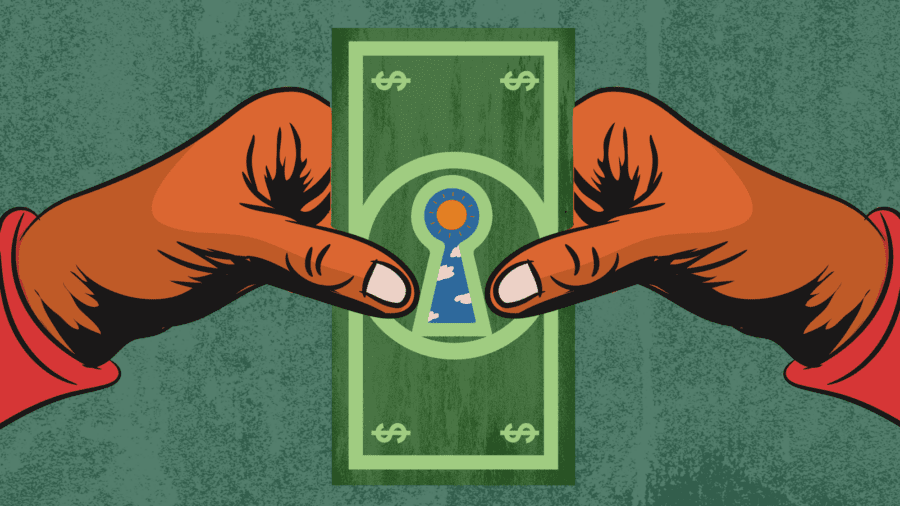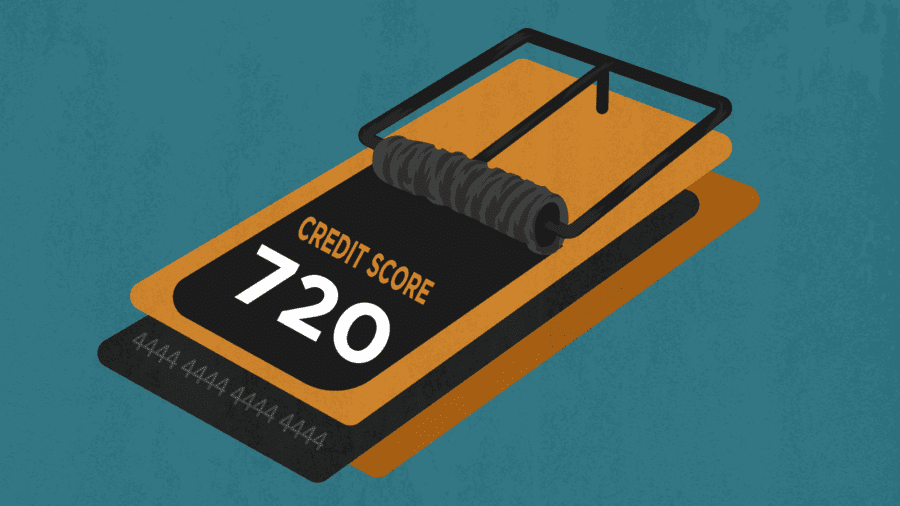
A First-Time Homebuyer’s Guide to Navigating a Seller’s Market & Negotiating Like a Pro
Are you looking to make your first home purchase?
Even though it may seem intimidating, buying a home has MANY benefits, including more consistent housing costs, freedom to do whatever you want with the property (as long as there are no homeowner association restrictions), and an investment that will appreciate over time.
Buying a home for the first time can be a challenging endeavor, but you can learn invaluable negotiating skills to help you find the perfect house in your price range.
This article will teach you all about navigating beginner homeownership, including the different market types, the advantages of being a first-time homeowner, applying for mortgages, negotiating, and much more!
What Is a Seller’s Market, and How Does It Differ from a Buyer’s Market?
Before buying your first home, it’s important to understand the housing market landscape. You might be aware of the terms “seller’s market” and “buyer’s market,” but what exactly do these terms mean?
A seller’s market refers to when there are fewer houses for sale than available buyers, meaning that sellers are in a better position for negotiations.
One of the main contributing factors to a seller’s market is housing shortages. Because there are fewer homes, sellers will usually receive multiple offers, which hurts your position as a negotiator. If you try to negotiate the price down on a home with multiple offers, the seller will most likely go with a different buyer willing to pay at or above the asking price.
One great way to tell whether it’s a seller’s market based on how quickly homes sell and whether housing prices are inflated.
Because there’s a smaller supply, homes typically sell for much more money than usual, and bidding wars will raise the price of homes even higher. Houses usually sell at or above the asking price, and the asking price will typically be much higher than if you’re investing in a home during a buyer’s market.
On the other hand, a buyer’s market refers to when there are more homes for sale than buyers, meaning buyers are in a better negotiating position than sellers.
There are usually a few contributing factors to why an area experiences a shift toward a buyer’s market. One major factor that could cause a buyer’s market is an economic downturn that results in many homes going up for sale, such as the Great Recession from 2007 to 2009.
A particular city or area of the country may also experience a buyer’s market if there’s an increase in crime, overproduction of homes, or businesses exiting.
During a buyer’s market, you can expect home prices to drop, homes sell either at or below their asking price, and houses sell slowly.
Perks of Being a First-Time Homebuyer
Although getting started with home buying in a seller’s market is daunting, there are certain benefits that you may qualify for as a first-time homebuyer in the United States.
One of the most significant advantages to being a first-time homebuyer is qualifying for federally-backed loans.
The U.S. government incentivizes Americans to buy homes with various first-time buyer loan types, such as FHA loans, VA loans (if you’re a veteran), and USDA loans. If you’re looking into buying your first home, you should also check for state programs that may help you obtain a home as a first-time buyer.
In addition to federally-backed loans, you can obtain mortgage credit certificates, reducing your tax bill up to $2,000. Further, you can withdraw up to $10,000 from a standard IRA or Roth IRA without paying a penalty when buying a home for the first time.
In order to obtain these benefits, you must qualify as a first-time home buyer. The United States Department of Housing and Urban Development (HUD) outlines the following qualifications:
- You have not owned a principal residence in the last three years. Additionally, you may qualify for first-time home buyer benefits if your spouse hasn’t owned a principal residence in the last three years.
- You’re a displaced homemaker — an unemployed or underemployed stay-at-home parent who no longer receives financial assistance from a spouse — and you co-owned a principal residence with a spouse.
- You’re a single parent who owned a home with a former spouse.
- You owned a home that didn’t have a permanent foundation.
- You owned a home that didn’t comply with model, local, or state building codes and can only comply by building a permanent structure.

The Greatness Mindset
Learn the secrets of some of the greatest minds in the world. Unlock the power of your mind and live your best life today.
Learn MoreImprove Your Homebuyer Education Before You Buy
As a first-time home buyer, learning more about the buying process and becoming more focused and intentional with your home-buying goals is key to a successful negotiation.
There are various personal considerations you should take into account before buying a home.
Evaluate Your Personal Finances
First, you need to take your personal finances into account.
Perhaps the most important thing you need before even considering buying a home is having an emergency fund. This fund should be able to cover three to six months of your expenses, and it should also have enough to cover expenses associated with home buying, such as a down payment and closing costs.
You should also have a good handle on your budget and how much you spend every month. This knowledge will help you determine how much you can afford in terms of monthly mortgage payments.
Get very organized with your spending, and don’t ignore any expenses when budgeting. You should also consider your financial health regarding your long-term savings and retirement.
Finally, you must ensure your credit is good when evaluating your personal finances.
You’ll need a good credit score (at least 620) to qualify for a mortgage, and your debt-to-income ratio shouldn’t surpass 43%. Additionally, you need to have an ongoing history of paying your bills on time.
What to Look For in Your First Home
After evaluating your personal finances, it’s time to determine what you want in a home.
Depending on your familial situation, you may want a single-family home, condominium, townhouse, co-operative, multifamily building, or duplex. You should also consider what features and amenities are a priority, such as a nice neighborhood, home layout, convenient location, and other preferences.
Once you’ve figured out the type of home you are looking for, it’s time to determine your potential budget. When your dream house and your finances align, you’ll find yourself in the perfect position to lobby for the home you want.
Budgeting for Your Housing Payments
Next comes your mortgage and budgeting for the right dollar amount when you purchase a home. We’ll discuss mortgages in far greater detail later on in this article, but it’s important to know what kind you will qualify for.
First, you’ll need to receive pre-approval on a mortgage BEFORE making an offer on a home.
Additionally, your mortgage qualifications will impact your ability to work with a real estate agent. Being pre-qualified for a mortgage shows realtors that you’ve already taken significant steps in the process and that you are a valuable candidate. Real estate agents make money off commission, so if you don’t qualify for a mortgage and can’t afford a home, they can’t make any money by helping you.
Last but not least, you need to determine your actual budget for a home. For example, just because a bank pre-approves you for $500,000 does NOT mean you should invest in a $500,000 home.
There’s a term called “house poor” that refers to people buying homes outside their price range. Although they may live in a nice home, they can’t afford much else outside of mortgage payments, leading to a tight budget.
When calculating your home budget, consider the home’s total cost, property taxes, homeowner’s insurance, closing costs, and home maintenance costs.
Join In 200 Million+ On The Journey to Greatness
How to Apply for a Mortgage as a First-Time Homebuyer
Before applying for a mortgage, you can use a mortgage calculator to determine how much you’ll likely qualify for. This, of course, is not 100% accurate, but it will give you a rough estimation as you search for lenders.
The calculator will consider your income, employment history, credit score, and debt obligations, such as a car lease. Then, it will determine the price range of the home you should be looking for.
Next comes determining the mortgage payment you can afford. Again, just because you receive approval for a certain amount from a lender does not mean you should take out a substantial mortgage. A great rule to follow is to keep your mortgage payment below 28% of your gross monthly income.
Don’t Be Afraid to Shop Around for the Right Mortgage
Once you begin mortgage hunting, it’s also important NOT to be loyal to any particular lender. You need to shop around while going through the pre-approval process to find your optimal mortgage rate and avoid certain fees.
For example, just because you use a bank for your savings account doesn’t mean you should get a mortgage with them. Research different financial institutions to determine where to apply for a home loan. This could be a mortgage bank, credit union, your bank, or a mortgage broker.
What Is a Mortgage Broker?
A mortgage broker functions as an intermediary between home buyers and lenders. Rather than having to find an optimal lender yourself, a mortgage broker works with a variety of lenders in order to present you with different loan options. They can also help you receive approval for the mortgage.
Although mortgage brokers can save you time and might be able to help you obtain a better mortgage, many are hesitant about trusting them. One reason why is they don’t always have your best interest at heart because they sometimes receive feeds from lenders.
In fact, leading up to the 2008 housing market crash, many mortgage brokers intentionally matched borrowers with mortgages they couldn’t even afford because they wanted to receive the most compensation possible from lenders.
If you shop for a mortgage through a broker, do your due diligence and research to ensure the loan is right for you rather than just taking their word for it.
How Long Does It Take to Get Pre-approved for a Mortgage?
The pre-approval process varies for mortgages and can take anywhere between a few minutes to 90 days.
During this process, the lender will evaluate your finances and verify your employment status. They’ll also check your current credit score and use your financial information to calculate your debt-to-income ratio.
One important note is that you may want to have backup lenders even if you receive pre-approval. A lender may change its mind about approving you for a loan for various reasons, such as a shift in the market, a change in your credit score, or new company qualifications, so it’s a good idea to get pre-approval from multiple lenders.
Getting Started with Home Buying Negotiations
Once you receive pre-approval for a mortgage, it’s time to find a great home and negotiate an optimal price.
Becoming a skilled negotiator has many benefits. You can negotiate a better salary, improve your professional relationships, become better at resolving conflict, and more. It’s no surprise that this lucrative skill will also assist you in the home-buying process.
To negotiate a house’s price down, you need to consider certain factors that will impact the leverage you have while negotiating. Firstly, you need to consider the market and price of similar homes.
Assuming you’re buying a home in a seller’s market, you’ll likely have difficulty negotiating the price if it’s a desirable house. If there are other similar homes in the area that sold for a particular price, that will directly impact your ability to negotiate, and in a seller’s market, other homes probably sold at or above the asking price.
These inflated prices will make it more challenging for you to haggle unless the seller’s asking price is higher than similar homes in the area.
Another consideration you need to make is whether there are other bidders. The more potential buyers there are, the more likely the house will sell above the asking price.
Bidding wars are prevalent in a seller’s market, so if you attempt to negotiate price while other available buyers are willing to pay at or above the asking price, the seller will most likely go with one of the other buyers.
If no other buyers are involved in the sale, that’s the best time to make an offer below the listing price. Additionally, there could be buyers who aren’t willing to pay the seller’s asking price. In these cases, you may be able to negotiate the price down as long as the buyers don’t outbid you.
Negotiating After You Make an Offer on a Home
After you submit your offer, the seller can accept it, reject it, or provide a counteroffer. When they provide a counteroffer, it’s the best time to negotiate.
Follow these steps to negotiate like a pro:
- Negotiate reasonably: Don’t try to negotiate an unreasonable price. If your initial offer or subsequent counteroffer is insultingly low, the seller may think you’re just wasting their time and will reject it.
- Negotiate an appraisal contingency: An appraisal contingency means that if the home for sale does not appraise for the amount you agreed to pay, you can walk away after signing the contract.
- Get a home inspection: Getting a home inspection is necessary to protect your investment, and it may also reveal problems with the house that impacts the price you’re willing to pay. It’s always important to do this before making a final offer.
- Keep the offer straightforward: Don’t include a bunch of unnecessary contingencies in your offer that may overcomplicate the deal, such as a contingency on insurance approval. Additionally, offer a standard closing period (30-45 days).
- Negotiate through a trusted real estate agent: This step is especially important for first home buyers. Real estate agents have experience negotiating and getting their clients the best price possible because they have industry knowledge.
Take Your First Steps Toward Home Ownership
Getting started with buying a house can be intimidating, especially in a seller’s market, but you can use the tools from this article to find a great home and negotiate a reasonable price. If you’d like to learn more about finding the right home for you, we recommend checking out home-buying resources on Investopedia.com and Forbes.com.
Becoming a homeowner takes hard work, but YOU are capable of setting yourself up to negotiate like a pro and finding a great home that will serve you for years to come!
Greatness Authors
Greatness Authors is a collection of writers, thinkers, curiosity experts, and students of the world who are committed to bringing you the most up-to-date, impactful, and inspiring information surrounding Greatness topics.

Before You Retire, Ask Yourself These 7 Financial Questions to Make Sure You’re in the Clear

The *New* Way to Market Your Business on YouTube & Best Practices for Higher Engagement

The Power of Masterminds to Grow Your Business and How to Find One Near You

4 Inspirational Stories That Prove Money Isn’t the Key to Happiness

A Beginner’s Guide to Building a Great Credit Score While Avoiding Debt and Common Credit Mistakes










